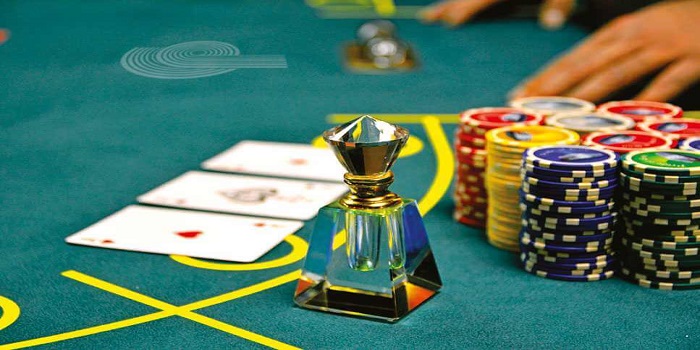Remember the days before plastic? Well, they may be returning to the casino floor. The latest assault on the gambling industry takes aim at automated tellers and credit card swipe machines. Rep. John LaFalce, D-N.Y., has introduced a bill to put some distance between fools and their money.
The idea is well-intentioned: Gamblers would not be able to tap into the money they have in the bank in order to stay in the game or use their credit cards to dig a financial hole for themselves.
Casino opponents say the measure would curb compulsive gambling by giving gamblers an out.
When all their cash has expired from their pockets, they would have to walk away from the casino, at least long enough to visit an off-site cash machine. The thinking is that once free from the dealers, pretty waitresses carting free booze and slot machines with their blinking lights and dinging bells, the fresh air will snap gamblers out of their compulsive stupor.
LaFalce made a similar attempt to ban ATMs and credit card machines in 1999, but it never got so much as a committee hearing. Rep. Jerrold Nadler,D-N.Y., proposed an ATM and credit card ban in 1998 but gave up on it when the bill bogged down in the legislative process.
Nevada regulations already ban the use of credit and debit cards to finance the play at table games, though ATM machines are never more than a short walk away, just as they are on the Coast.
Expect a hard fight against this assault on the casino industry, as well.
The gambling lobby has only grown stronger since then, with Frank Fahrenkopf, the former Republican National Committee chairman, now in charge of the industry’s political arm, the American Gaming Association.
Republicans, with a few exceptions, tend to be the staunchest allies of the gambling industry, and I can see how such the ATM measure would rub up against a conservative point of view. If the ban passed, once again we would have the government protecting us from ourselves, telling us how much and when we could spend our money.
For the most part, Democrats argue that it is the government’s job to protect society’s most vulnerable citizens – in this case, those with gambling addictions – from themselves and those who profit on their weakness. By that logic, the next step would be to ban the machines from
convenience stores, since alcoholics could draw out their money to buy beer and wine.
“This is like telling a store it can’t sell things on credit,” Wayne Mehl of the Nevada Resort Association told the Gaming Wire.
I see another big drawback. The measure also would force casino visitors to carry larger amounts of cash, making them even more enticing targets for muggers. Pengeluaran SGP Casinos canvas the playing floor with video cameras, pit bosses and
all kinds of security, but they do a pretty lousy job monitoring and patrolling their parking lots.
With casinos in their corner, lawmakers have tried in vain for years to ban the use of credit cards for Internet gambling. Casinos didn’t want the competition, but now companies are looking at getting in on the $4 billion a
year industry. Congress hasn’t been able to block the use of credit or debit cards partly because it’s difficult to mandate the manner in which people spend their money on a product or service that is, itself, legal.
LaFalce’s bill is a spin-off of the 1999 National Gambling Impact Study, a two-year study of the economic and social costs of gambling.
The commission estimated that 40 to 60 percent of money bet in casinos does not arrive in the form of cash with the gambler, and casinos issue billions of dollars in credit markers each year, on top of credit card debt.
In an Iowa study, nearly one in five bankruptcies were attributed to gambling debt. Nationally, nearly 22 percent of Gamblers Anonymous members have filed for personal bankruptcy, according to the organization.
Those numbers can easily be turned to the casinos’, favor, however. Financial ruin, most gambling opponents say, is the chief risk of gambling, the root that causes divorces, crime and suicide. Yet, only about one in five admitted addicts, those who have hit rock bottom, say they have gone
broke.
For LaFalce, a 14-term lawmaker, the fight against legalized gambling goes back much further, however. He led congressional hearings in 1994 that resulted in the creation of the National Gambling Impact Study Commission, a
nine-member panel of federal appointees, including Dr. Paul H. Moore of Pascagoula.
We haven’t heard the last of this one.



